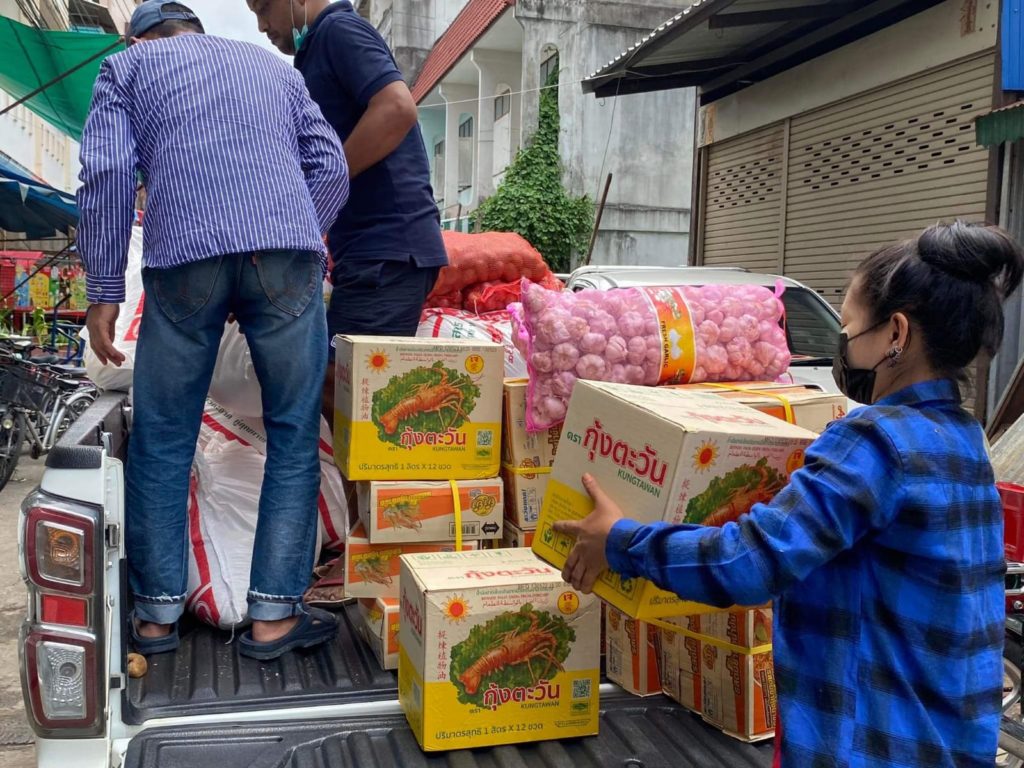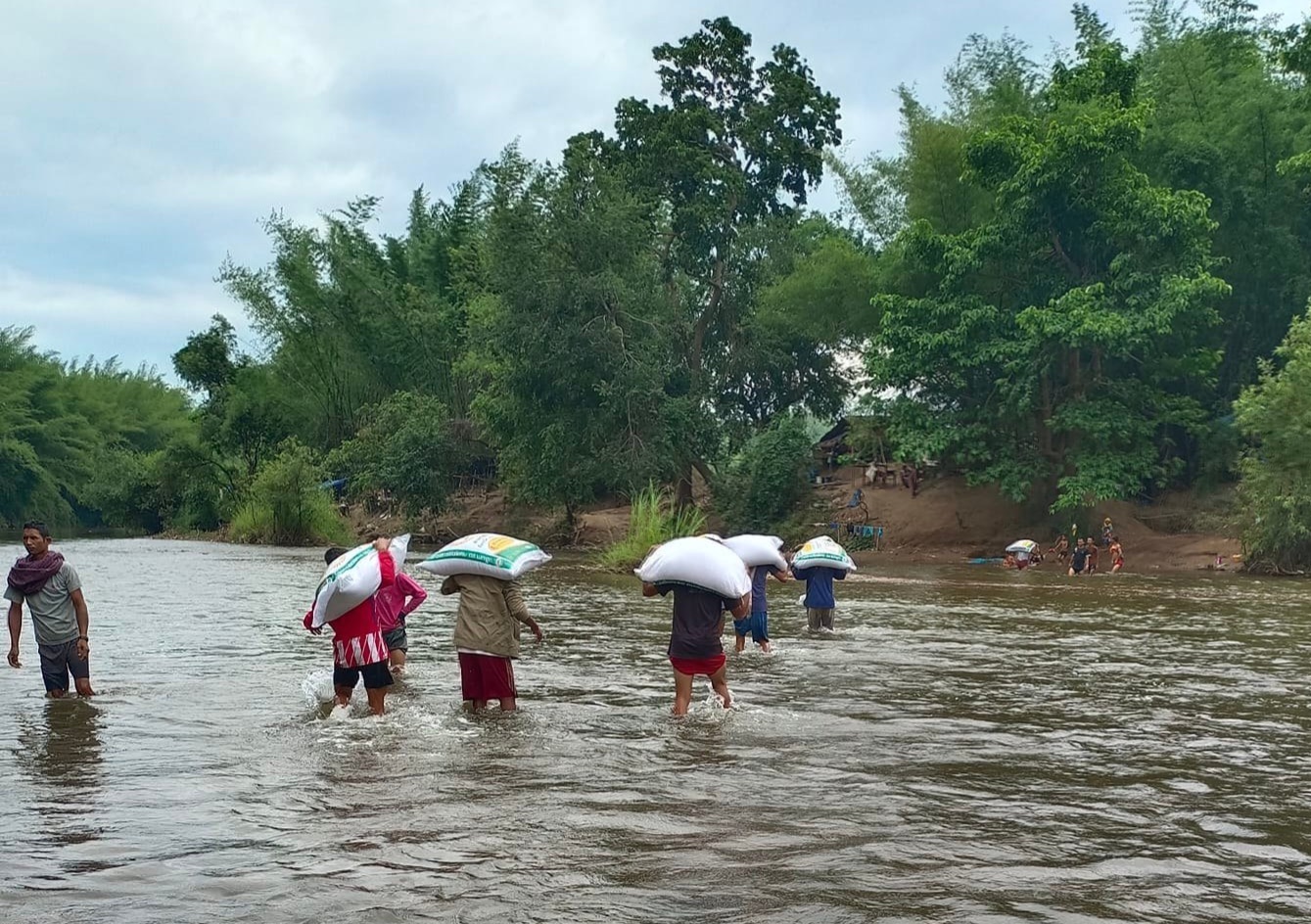By Paul Greening
Guest Contributor
It is apparent that the main reason for United Nations (UN) agencies engaging with the junta is perceived self-interest but they support their decision with various excuses. Their staff are judged on the funds they bring into the organization which sustains the jobs of not only those working in the country but also those based at the headquarters. Usually, seven percent of the total budget goes to support operations at the headquarters. So, everyone has a vested interest in obtaining as much funds as possible. Unfortunately, most UN agencies see engagement with the junta as the means to do this.
The junta provides memorandums of understanding (MoUs), visas, and gives travel permissions. Having these shows donors that they are operational in-country, and this secures funds. This suits the junta as it can control the UN agencies and direct aid to areas most advantageous to themselves. There is plenty of evidence of the junta weaponizing aid. The Burma Army’s “Four Cuts” strategy has always been standard operating procedure, and the current junta uses international aid as a resource for its carrot and stick approach by denying aid to territories with strong resistance, and by offering aid as a carrot to those who are willing to be pacified.
At the moment the junta is apparently focused on the general’s fake elections. They won’t have any credibility but that may not prevent some donors and UN agencies from using them as an excuse to continue engaging with the junta. Some countries might take the fake elections as a step in the right direction and others may take them as fait accompli. What they irresponsibly ignore or overlook is that Min Aung Hlaing’s attempt to legitimize a failed power grab through staged sham elections will just escalate and deepen circles of violence in the country. Anybody who thinks that elections can be the way out of current conflict has no understanding of what is happening on the ground in the country.
Agencies and INGOs have various excuses for engaging with the junta. One is the ‘better something than nothing’ excuse. Better to provide some aid to places where there is an obvious need instead of not doing anything. This argument is usually followed by the counter challenge: ‘You cannot deny that there is a need.’ However, what this line of argument is hiding is that the need is intentionally created by the same actor with whom they have made an agreement to provide aid. Part of the “need” is in territory that is under control of the force that has created need and is still creating need in other places. There is another and even bigger ‘need’ in territories not controlled by the junta where they are intentionally displacing the civilian population. Therefore, the junta creates a need and allows international aid organizations to deliver aid on territory they control and prevents the delivery of aid to territory out of their control. By agreeing to deliver aid to only junta-controlled territory and not other areas, international organizations are contributing to the pacification of the population in need for the political purposes of the junta that has created the need and so helps them consolidate control.

The ‘better something than nothing’ argument is predicated on the idea that most aid delivery is only possible through collusion with the junta. While some cross border aid is supported by some international organizations it has been used in a very limited way and is not treated as a serious alternative. What is the proportionality of budgets used to provide aid to junta controlled territory and to non-junta controlled territory? This is not specified in UN statistics.
Other excuses are more spurious such as is our Standard Operating Procedure (SOP) and we have done this in other countries. Of course, context is everything which every aid worker should know but still it is common to hear, “we did that in Syria.” It is stating the blindingly obvious that because something works in one context it will not necessarily work in another and SOPs are not written in stone but meant to support and not hinder aid work. If they don’t then change them to fit the context.
One of the best ones I heard from the country head of an international organization is, “we may be told where we can’t go but not where we can go.” This deserves no comment and shows a disturbing lack of basic logic for the country head of an international organization.
“We need to have a presence in the county to protect the CSOs we work with” may sound courageous, they are not in a position to protect CSOs and how will being in the country make a difference? “CSOs wouldn’t be able to handle donor compliance” is another excuse that looks at the problem the wrong way round. The answer, as has been stated frequently, is that donors need to simplify their procedures and be more flexible. To be fair some donors are already doing this. The INGO can support this from out of the country. Most communication is through the internet anyway.
“Sometimes we have to deal with the devil such as the Taliban.” This sounds bold and macho but the junta is not the Taliban and the context is different. “Engaging with the junta is not legitimizing them” sounds good but it is helping legitimize them. They are treating them as the legitimate government and automatically increasing the perception of them as such. You cannot say you are not legitimizing them when your actions do.
“You can’t cover all the needs cross-border. You need a dual approach to cover the needs at scale; cross border and in country”. This sounds reasonable but even in the few areas where international organizations can organize aid the aid is under the control of the military with the consequences mentioned above. Very few international organizations have looked into and discussed cross border aid with the National Unity Government (NUG) or Ethnic Resistance Organizations (EROs) so they are just making assumptions based on ignorance.
Even if organizations do engage with the NUG and resistance actors it is not public while they engage with the junta publically. The bottom line is that the junta is the one who is illegitimate and the one who is killing, torturing, burning, producing a huge number of displaced people, cutting aid deliveries and blackmailing. Nobody else does it. Thus if aid actors engage the junta publically and do not do the same with others, it is inevitable they will be perceived as endorsing the criminals who use brutality and blackmail.
In fact, it has been reported that the NUG has called for UN agencies to coordinate with their Ministries if they are delivering humanitarian aid in their controlled areas, especially in Sagaing and Magway regions. But no UN agency or INGO have done this yet. Some UN agencies have reached out to local organizations without coordinating with the NUG or EROs. This undermines the authority of the NUG and EROs. In addition as these UN agencies have engaged with the junta, local organisations tend not to trust them.
Heads of UN agencies see getting MoUs as a pragmatic way of being able to work and see no benefit in working with the NUG. Thus, the aid community has kept itself as hostages of the junta. For nearly two years they have tried to negotiate aid deliveries with the junta’s endorsement and they have spectacularly failed to address the real and urgent needs of a population displaced and terrorized by the military. At the same time, UN agencies and INGOs have not failed to cover their own headquarters, staff, and on-the-ground operational costs. Unfortunately there seems to be some arrogance in the international community approach to the NUG and civil society. While they are quick to justify engagement with the junta they are disparaging towards the NUG as the legitimate authority.
With the recent passing of The BURMA Act in the U.S. Congress that advocates for non lethal aid to NUG, EROs and PDFs hopefully donors and international aid organizations will rethink their policies and use it as a turning point in how they deliver aid. A start would be a meeting between NUG and the UN Country Team (UNCT) in Burma to discuss how best to deliver aid. The NUG and EROs have been more proactive in calling for this but have met resistance from UN agencies and INGOs. One UN agency actually specifies it will not work with any organization that works with or is connected to an ERO. The U.S. as the biggest donor needs to be more proactive in trying to make this coordination happen and bring them all to the table.
Paul Greening is an ex-UN senior staff member with over 20 years experience in six Asian countries working for six UN agencies and four INGOs. He worked in Sittwe, Arakan for IOM from 2017 to 2020 and since then has been involved in advocacy against the illegal coup and supporting those who have suffered from it.



